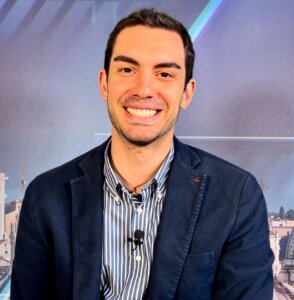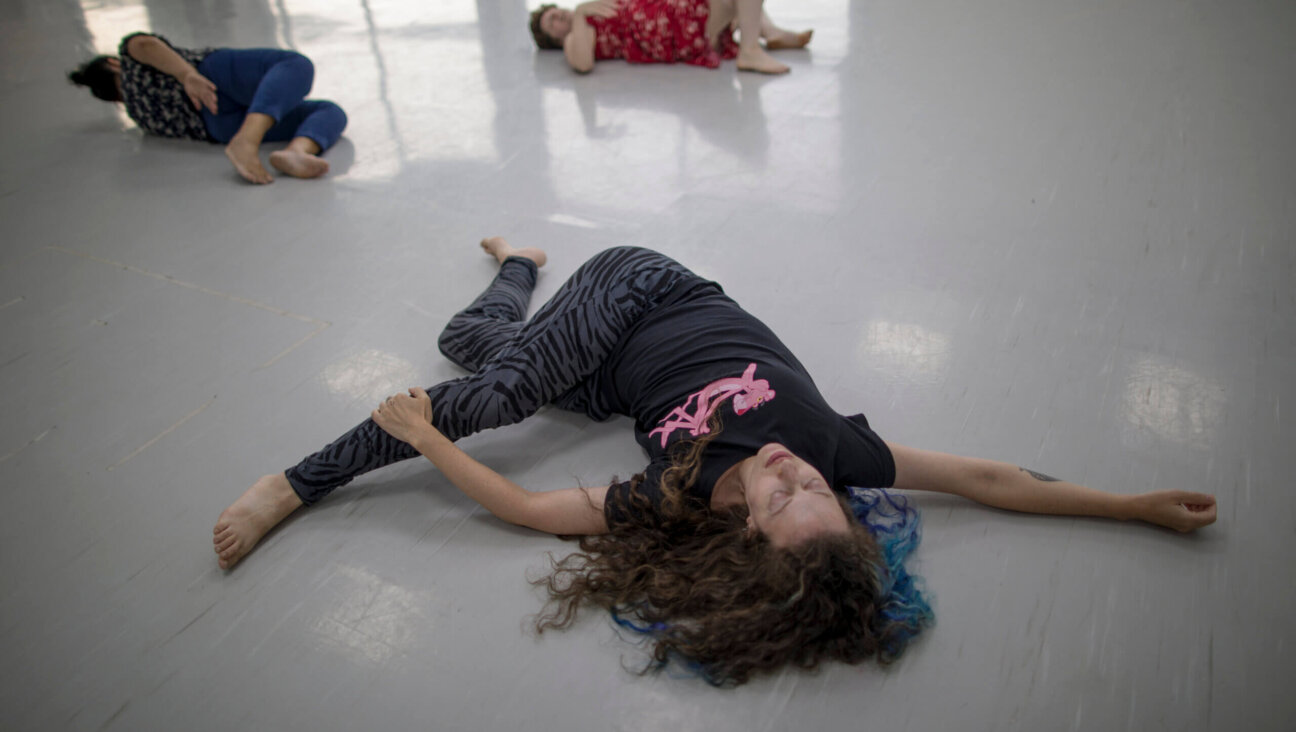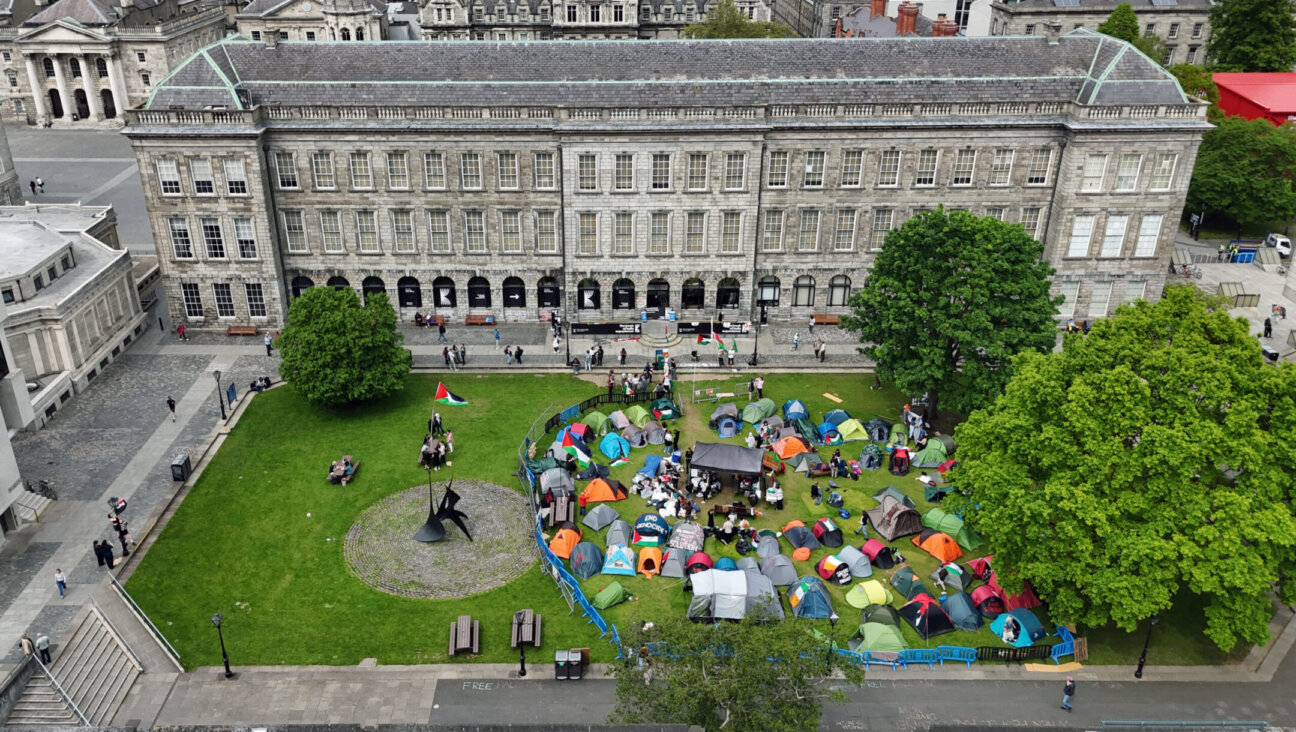‘Difficult, painful and complex’: Everything released hostages have said about their time in captivity
As more than 100 hostages were released from Gaza during a weeklong truce, they shared accounts of malnutrition, days spent in total darkness and physical abuse

Supporters welcome Israeli hostages as they arrive at Ofakim army base in southern Israel early on Thursday. Photo by Menahem KAHANA / AFP
By one account, hostages held by Hamas were only allowed to eat one pita with hummus and beans per day, sharing it with more than 10 people.
They were not allowed to bathe for the duration of their captivity, nor could they write, read or get the most recent news about the war. They had no idea if their loved ones had survived the Oct. 7 Hamas attack, which killed some 1,200 people. The majority of them were locked up in basements several stories below ground level, and never saw sunlight.
Hamas took about 240 hostages from Israel during the Oct. 7 attack. As more than 100 hostages were released this week during a truce between Israel and Hamas, harrowing narratives about the circumstances they experienced in captivity have begun to surface. The details so far revealed have come through interviews with the released hostages, many of whom continue to undergo treatment in hospitals.
Dr. Itai Pessach, director of Sheba Medical Center’s Safra Children’s Hospital, described the stories emerging from captivity as “difficult, painful, and complex.”
Here’s what we know so far.
Counting the days in darkness
Yaffa Adar, 85, meticulously counted the days of her captivity, steadfastly holding onto hope. “She came back and she said, ‘I know that I’ve been there for 50 days,’” said one of her grandchildren, Adva, in an online news conference last Sunday.
A photo of Adar being abducted from her home in Kibbutz Nir Oz by Hamas terrorists on Oct. 7 had circulated around the world. Although she lost substantial weight in captivity, Adar reportedly still managed to receive her medication, and had to spend only one day in the hospital upon her release, leaving to the emotional applause of the medical staff who took care of her.
Eyal Nouri, the nephew of 72-year-old Adina Moshe, shared in an interview with MSNBC that his aunt had to “adjust to sunlight” after being confined “in complete darkness” for weeks.
“She was walking with her eyes down because she was in a tunnel,” Nouri said. “She was not used to the daylight. And during her captivity, she was disconnected … from all the outside world.”
During her captivity, Nouri was reportedly unaware that her husband had been killed during the Hamas attack.
Lice and minimal rations
Avigail Idan, who was taken captive at age 3 and turned 4 last week, was reportedly held hostage with four of her neighbors in an above-ground apartment in Gaza.
Her aunt, Tal Idan, told The New York Times that as soon as she was freed, Idan had to have her hair shaved because it was riddled with lice.
“It was lovely curly hair,” Tal Idan said. “And now it’s all gone. But it will grow again.” Avigail Idan’s parents were killed by Hamas in their home in Kibbutz Kfar Aza; she will now live with her aunt and her two siblings, who survived the attacks.
Keren Munder, 54, along with her mother Ruthi, 78, and son Ohad, 9, endured days surviving solely on pita bread, her cousin, Merav Mor Raviv, said in a statement to journalists on Sunday.
Both Munder and her mother experienced significant weight loss due to irregular nutrition, Raviv said, losing between 15 and 20 pounds. The hostages’ diet, which reportedly consisted mainly of rice, canned hummus, beans, salty cheese and pita bread, lacked essential nutrients. One elderly woman lost almost 27 pounds during her captivity.
Reports suggest that most of the children held hostage were restricted in their activities, and only allowed to engage in quiet pursuits like drawing and playing with cards. But Ohad Munder, who turned 9 in captivity, managed to keep a diary.
Once Ohad was liberated, Raviv showed him a video that Israeli Olympic athletes — some of whom visited him in person at Schneider Hospital with the football players of Hapoel Beer Sheva — had prepared for him.
Thomas Hand, father of 9-year-old Irish-Israeli hostage Emily Hand, told CNN that his daughter emerged from captivity with significant weight loss and a pale complexion.
But Hand said that his daughter reported the hostages had sufficient food for survival and access to water, telling chief foreign correspondent Clarissa Ward that “They always had breakfast, sometimes lunch, sometimes something in the evening.”
Describing Emily’s hunger, Hand mentioned she “learnt to like plain bread with olive oil.”
Minimal medical care and physical abuse
Yaniiv Yaakov, uncle of brothers Yagil, 12, and Or Yaakov, 16, who were freed Wednesday, said that his two nephews were drugged by Hamas terrorists and branded on their legs using the exhaust pipes of motorcycles, so they would be recognized in case they were able to escape.
He claimed other hostage children were subjected to the same treatment.
“They were treated so badly, but at least they are with us,” he said.
Medical treatment was also in short supply for the hostages. The aunt of French-Israeli hostage Mia Shem, 21, said that a veterinarian in Gaza operated on her niece’s hand, which was injured in the Oct. 7 attack.
And at a news conference, the family of 84-year-old Elma Avraham, released on Sunday, raised concerns about her health, alleging severe medical neglect during her captivity.
“When she came back, my mother was on the verge of death,” said Avraham’s daughter, Tali Amano. “Her pulse was 40. Her temperature was 28 Celsius degrees, semi-conscious, full of bruises. She was abandoned twice, once on Oct. 7, and abandoned a second time by all the organizations that needed to save her and prevent her condition.”
In an anonymous interview with the Israeli news outlet Ynet, an Israeli doctor revealed that the hostages he had treated, primarily elderly women, did not appear to have been subjected to physical abuse, but their plight was marked by a lack of medication, proper nutrition and decent hygiene.
“Initially, it was hard for them to sleep at night due to stress and fear,” he said. “Then they got or were given sleeping pills by their captors, which they divided into four parts to help as many people as possible sleep.” He added that in some cases, hostages said they had to wait at least two hours even to go to the bathroom.























